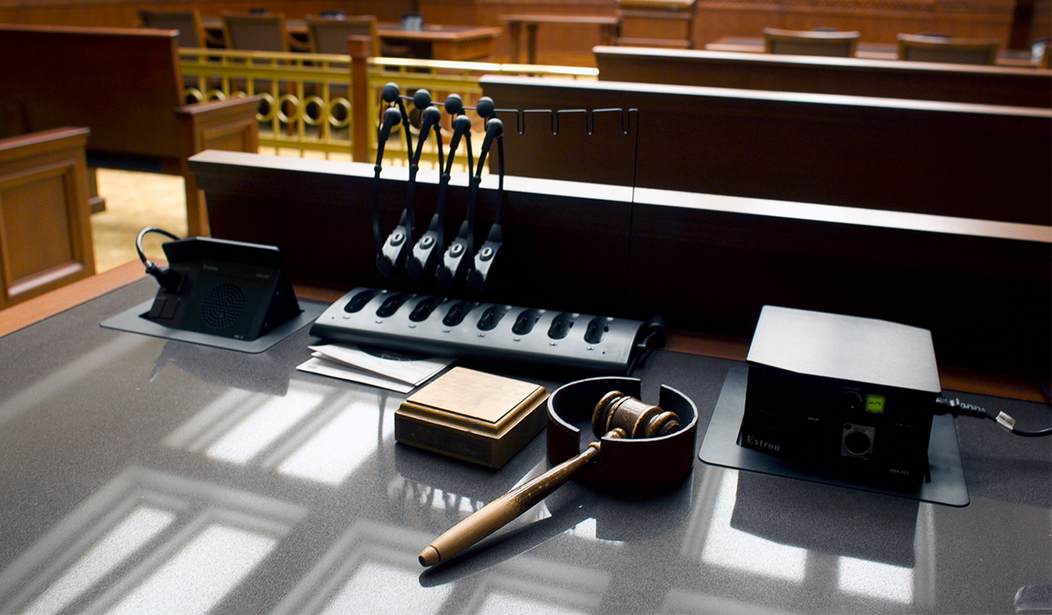Last April, Donald Trump signed an executive order entitled “Restoring Equality of Opportunity and Meritocracy. The order took direct aim at the so-called "disparate impact theory" that has been melded with Title VII of the Civil Rights Act of 1964 to create a legal nightmare that legitimizes discrimination.
Essentially, disparate impact theory has taken the Civil Rights Act of 1964 from trying to ensure "equality of opportunity" to demanding "equity in outcomes." It also places the burden of proof not on the plaintiff as it is in other civil cases, but on the defendant/employer. The company has to prove that it isn't discriminating.
How did we get to this point? If a test or any kind of employment selection process results in fewer minorities passing the test or being hired, the "disparate impact" can be challenged as discrimination. The disparate impact process grew from a 1971 Supreme Court case, Griggs v. Duke Power Co. At that time, there had to be evidence of "intentional" discrimination.
But the Equal Employment Opportunity Commission (EEOC) saw an opportunity to strike a blow for "equality" when it claimed that Duke Power was discriminating against black applicants because it required the passing of a standardized test and a high school diploma.
The key argument that was accepted by the Supreme Court was that the purpose of Title VII was to “accomplish economic results, not merely to influence motives or feelings.” The justices agreed because the fact that blacks were rejected at a higher rate than whites "proved" that there was discrimination.
In the Biden administration's final year, the Department of Justice filed four lawsuits against fire departments and the Maryland State Police: the fire departments of Durham, N.C., and Cobb County, Ga., and the police department of South Bend, Ind., were all hit with Civil Rights lawsuits based on disparate impact theory.
The purpose of picking on these small and medium-sized cities is for the DOJ to claim quick victories when the municipalities settle out of court. But all four plaintiffs decided to fight.
In each case, the DOJ alleged that these agencies had used racially discriminatory written tests—citing disproportionate failure rates for black applicants and questioning whether the tests were sufficiently job-related. The DOJ also challenged the physical-fitness tests used by South Bend and Maryland, claiming that they unfairly screened out women, and objected to Cobb County’s past use of credit checks, which, it argued, had a racially disparate impact.
In order to have standing to bring a disparate impact suit, the plaintiffs have to prove that a greater proportion of blacks failed the test than whites.
This flips the notion of "justice" on its head. It's convicting a company of evil actions even though the company never intended any bad actions.
"If a race-neutral policy affects racial outcomes—or appears to do so—" write Andrew M. Grossman and Kristin A. Shapiro in the Wall Street Journal, "the burden falls on the employer to prove that the policy is essential, a daunting standard."
In practice this means that employers, landlords and other businesses must track and plan for racial outcomes to maintain racial balance. Before adopting policies such as drug tests, they must assess the racial impact and consider alternatives that might achieve a more desirable racial balance. Race must be constantly monitored to identify potential liabilities. As Justice Antonin Scalia noted in his concurring opinion in Ricci, disparate-impact theory places a “racial thumb on the scales” and requires employers to make decisions “because of” racial outcomes.
Related: The UN Wants Global Oversight of Artificial Intelligence Technologies. What Could Possibly Go Wrong?
The Biden DOJ got what it wanted. Only the South Bend police department refused to sign a consent decree to "remedy" the discrimination. The other three public safety departments all gave up rather than fight the rigged system.
Since Donald Trump took office, all four suits have been dropped, and the executive order against disparate impact theory has begun to take hold. Trump's Justice Department is going through hundreds of regulations that became part of the Civil Rights Act of 1964. The executive order also requires the "cataloguing of state laws that impose disparate-impact liability, among other actions," according to Heather MacDonald.
Many court challenges remain to be adjudicated. However, the disparate impact theory has never been challenged to such a degree. Nor is it likely to continue to enjoy such broad support in the judicial system.










